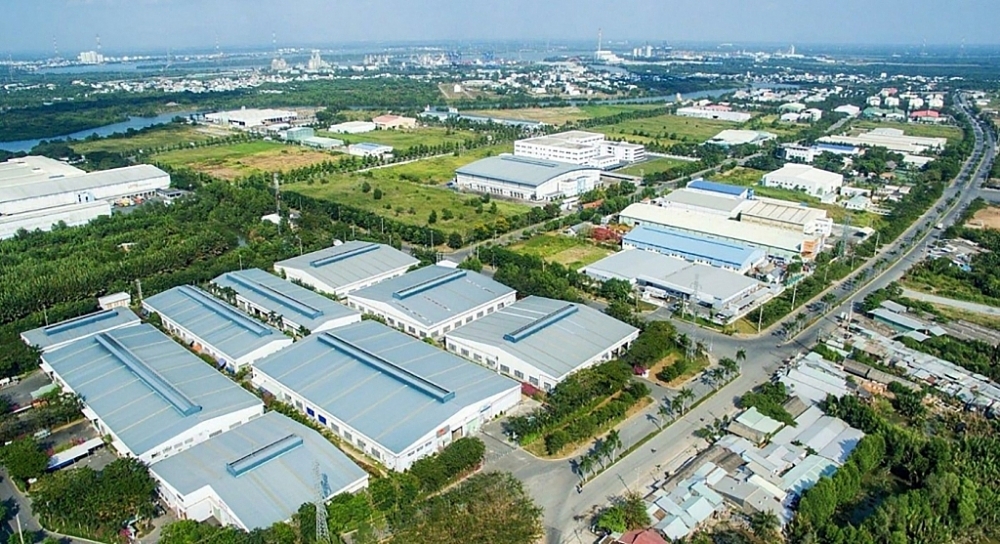A report by Savills Vietnam said that in the first six months of 2021, Vietnam’s real estate market showed signs of recovery with growth prospects in certain areas.
A number of high-quality residential and office projects have been launched recently, along with increasing demand for high-end offices. Apartment prices have increased in the context of limit ed supply pressure.
In particular, amid the 4th wave of Covid-19, Vietnam's industrial real estate continued to prosper thanks to newly established industrial parks, and key industrial projects coming into operation. Real estate is still the field that receives the third largest amount of foreign capital, with a capital inflow of US$1.05 billion in the first five months of the year, equal to 7.5% of the total registered capital. Of which, the value of capital contribution and share purchase by foreign investors in the real estate sector increased by 13.5% over the same period last year with US$248,428 million.
The industrial real estate market also witnessed many large mergers and acquisitions (M&A) deals. For example, Boustead Projects acquired a 49% stake in KTG Bac Ninh Industrial Development JSC (in Yen Phong Industrial Park) for about US$6.9 million; and ESR Cayman Limited and BW Industrial Development JSC (BW) cooperated to establish a new joint venture with the goal of jointly owning and developing 240,000 m2 in My Phuoc 4 industrial park near HCM City.
According to forecasts by Savills Vietnam, in the last six months, industrial real estate is still one of the sectors with the best development prospects. It is expected to continuously receive new demand in the future, especially in promising economic areas. The growth momentum of industrial real estate still benefits from M&A deals and new supply.
Dinh Minh Tuan, Southern Regional Director of Batdongsan.com.vn, said: “While the cash flow is pouring into stocks, this is also considered a good time for real estate businesses to prepare for welcoming capital inflows when the pandemic is under control. Simultaneously, flexible options need to be ready to cope with the uncertain market, with training and online sales because the pandemic can return at any time."
Depends on pandemic control
Although positive signals have appeared in some segments, according to experts, the pandemic will affect the real estate market in the near future. Therefore, there will be uneven development among localities, real estate segments, and projects.
Nguyen Hoang, R&D Director at DKRA Vietnam, said the real estate market in the last six months depended a lot on the control of the Covid-19 pandemic. If the pandemic persists and is difficult to control, leading to social distancing, it will greatly affect the life, production, and business activities of many industries, including real estate.
According to Hoang, thanks to drastic measures of the State, it is hoped the pandemic will be controlled soon. Simultaneously, the State's goal is to speed up the vaccination schedule from now to the end of the year, reaching about 75% of the population. At that time, social distancing will be gradually loosened and removed, returning to the normal state for social life, production, and business activities. And then, the market will be active again, supply and consumption may be higher than in the first half of the year. Projects will be restarted and put on the market, especially the apartment segment – the main product of the market that has stalled in the second quarter.
On the business side, according to Nguyen Huong, General Director of Dai Phuc Land, real estate businesses are focusing on maintaining their operations. Therefore, in the last six months, the situation cannot be immediately positive. However, in some respects, real estate is still a safe haven for cash flows, specifically the housing sector because it fully meets the needs of the people.
According to experts, when intending to invest in any type of real estate segment, individual investors should remember the most important rule: always carefully study the type of real estate investment and its potential development in the future.
Collecting accurate and reliable information on infrastructure development activities and published and confirmed planning will help investors not follow the crowd with unverified information.









